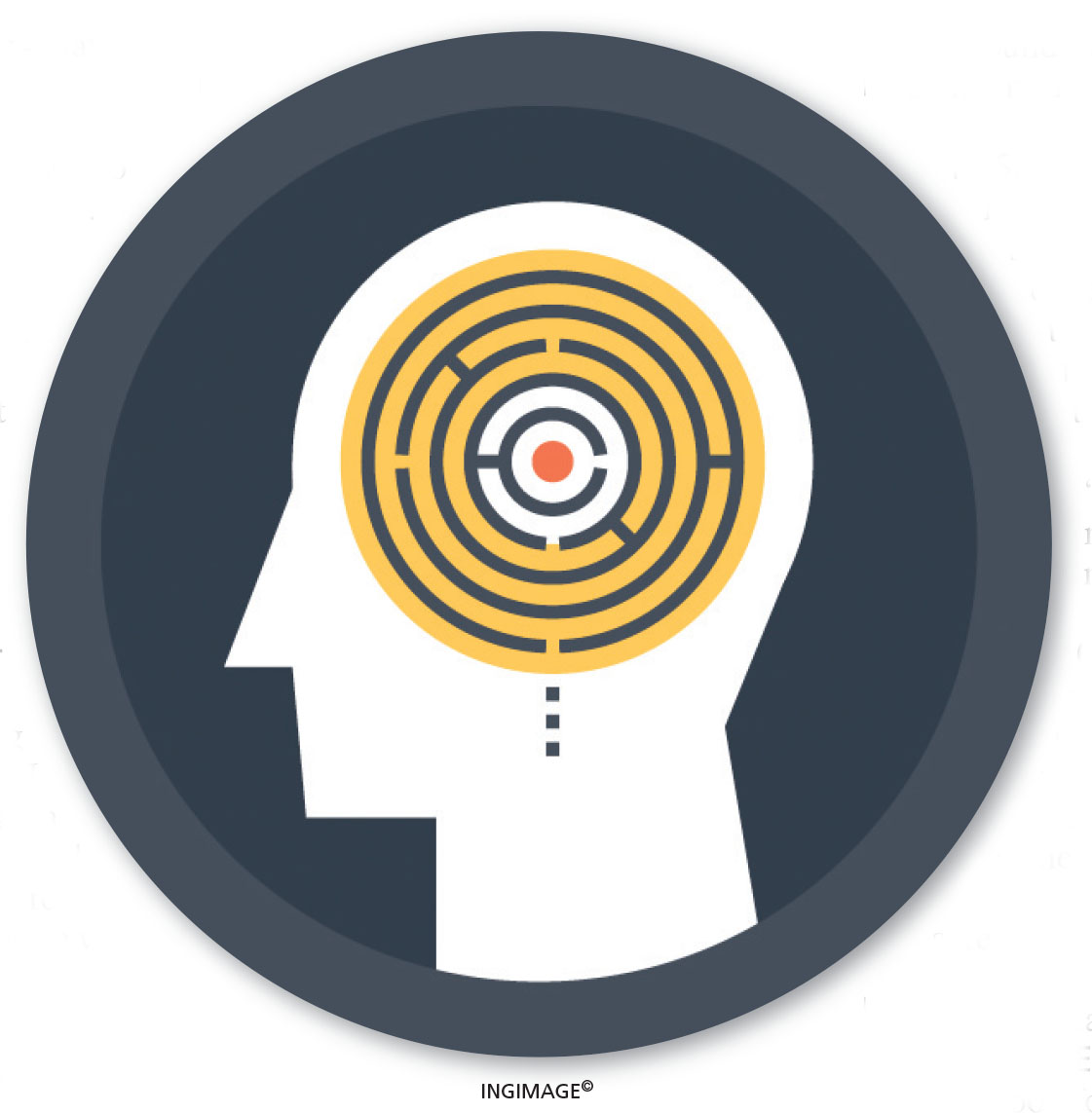BEHAVIOURAL PSYCHOLOGY
A MENTAL MUSCLING
Power of the mind to cope with life
BY Archana Law
Various forms of disaster – natural, man-made, complex emergencies and economic crises – have delivered unprecedented blows to our world in recent years. People frequently feel stunned, disoriented or unable to handle distressing information in such times.
Fortunately, research shows that most people are resilient and can bounce back from tragedy. Understanding the emotions and normal responses that follow a disaster or any other traumatic event can help us cope with our feelings, thoughts and behaviour.
When I first began researching anxiety for a neuroscience project, I never thought of myself as being an anxious person. That is, until I started noticing the words used by those around me and even myself to describe how we were feeling: ‘worried,’ ‘on edge,’ ‘stressed out,’ ‘distracted,’ ‘nervous,’ ‘ready to give up’ etc.
Mental toughness is always important and something everyone possesses to a certain degree. But no matter how strong we are, there’s always room to build bigger ‘mental muscle’ to ensure we don’t fly off the handle when things do not go our way or shy away from physically and emotionally challenging situations.
When someone hears the phrase ‘mental muscle,’ the typical responses include: the levels of strength to keep a positive attitude and work ethic even in tough times; exercising the mind by reading and learning; using reason; mental resilience that helps one adapt; awareness; perseverance; determination; and motivation.
Psychologist Dr. Supriya Dhongde is an expert on the topic. She recognises that when setbacks occur and pull us down, the answer lies in building stronger mental muscle. It’s also described as developing ‘grit,’ ‘tenacity,’ ‘persistence’ or ‘discipline.’
According to Dhongde, when coping with life’s challenges – including our relationships, career, health, finances and related issues – we move within a cognitive triangle. This triangle refers to thoughts (telling ourselves things to reframe a situation, seeing different perspectives, positive affirmations), feelings (sensing things because thoughts and feelings are inextricably linked) and behaviour (doing things as a result of thoughts and feelings).
To build stronger mental muscle, here are some tried and tested tips…
POSITIVITY Everyone has bad days that lead to negative thoughts. But by searching for positive and realistic expectations, you can eliminate these damaging and pessimistic thoughts, and better equip yourself to manage the bad days.
Self-defeating thoughts such as ‘this will never work’ can be replaced with something more realistic like ‘if I work hard, I’ll improve my chances of success.’
OBJECTIVES It’s fun to aim high and dream big. While focussing on the immediate milestones, which set you up for success and give you confidence in your ability to achieve, ‘stretch’ to do at least one difficult or different thing each day. Make sure to analyse your boundaries, pick something slightly outside those limitations and take one small step every day.
TOLERANCE Discomfort can often lead people to look for unhealthy shortcuts. Binge TV watching and excessive drinking are common emotional crutches. However, these short-term solutions more often create greater long-term problems. Remind yourself of the bigger picture and move forward.
BALANCE Being one hundred percent logical all the time may lead to a boring life that’s devoid of leisure, pleasure or even love. Likewise, basing all of your decisions on emotions may also be quite disastrous. To make the best decisions, balance your logic and emotions.
MOTIVATION Mental strength can help you to be productive when you don’t feel like being so. But it’s not a magic wand that will make you feel motivated all the time. When you’re tempted to put off something important, tell yourself you will go ahead for only 10 minutes. This helps to avoid procrastination.
NATURE Science has proven that spending time in nature has positive effects on our mental health. Breathe, relax and become aware of the sounds, smells and sights in a nearby park or any quiet environment with greenery where there aren’t many people around. Creating a heightened sense of awareness of the natural world will boost your overall resilience and restore the energy you need to reset your equilibrium.
VISUALISE At the beginning or end of each day, think about all those uncertain situations that currently feature in your life. Then visualise the most optimistic and amazing outcome for each situation that you can imagine!
Building a little mental muscle could have a major impact on your life. More physical strength will help you to lift heavier objects. The same can be said for your mental muscle – you will have more inner strength to tackle larger challenges and overcome obstacles!




